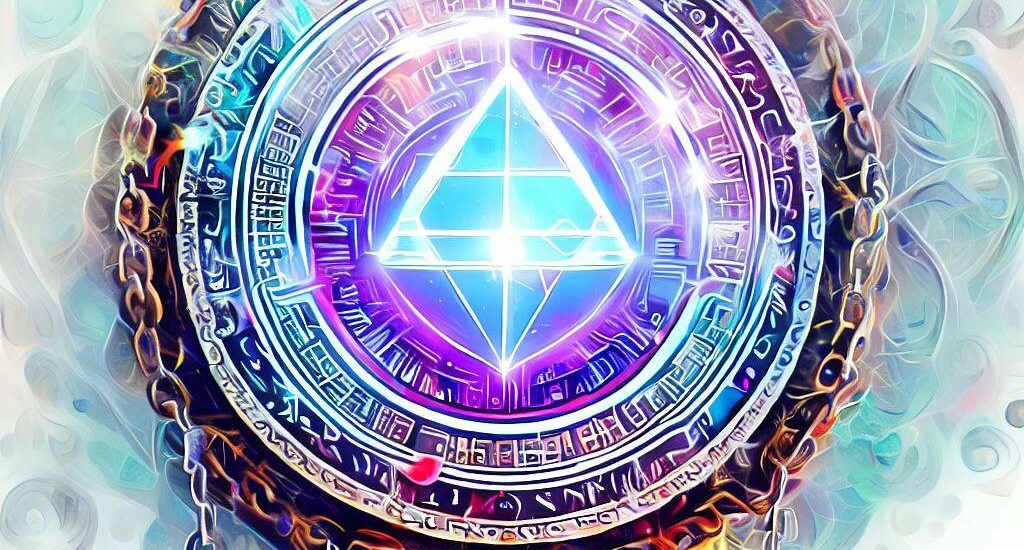Blockchain Oracles
- May 24, 2023
- Posted by: marek
- Category: Blockchain, Cryptocurrency, Tokens, Web

Blockchain Oracles
- May 24, 2023
- Posted by: marek
- Category: Blockchain, Cryptocurrency, Tokens, Web

Blockchain oracle is a term that refers to a third-party service that provides external data to smart contracts on a blockchain network. Smart contracts are self-executing agreements that run on a blockchain and can enforce certain rules and conditions based on the data they receive. However, smart contracts cannot access data outside of the blockchain, such as real-world events, weather, stock prices, sports scores, etc. This is where blockchain oracles come in.
Blockchain oracles act as bridges between the blockchain and the real world. They can provide various types of data, such as factual, subjective, or random, depending on the needs of the smart contract.
For example:
- A smart contract for an insurance policy may use a blockchain oracle to verify if a natural disaster has occurred and trigger a payout accordingly.
- A smart contract for a prediction market may use a blockchain oracle to determine the outcome of an event and reward the correct bettors.
- A smart contract for a lottery may use a blockchain oracle to generate a random number and select a winner.
- A smart contract for a supply chain may use a blockchain oracle to track the location and condition of goods and ensure quality and transparency.
- A smart contract for a decentralized exchange may use a blockchain oracle to obtain the current market prices of different cryptocurrencies and facilitate fair and efficient trades.
There are different types of blockchain oracles, such as software oracles, hardware oracles, inbound oracles, outbound oracles, consensus oracles, and trusted oracles.
- Software oracles: These are programs that fetch data from online sources, such as websites, APIs, databases, etc. They are versatile and widely used, but they may be vulnerable to hacking or manipulation. An example of a software oracle is an oracle that provides the exchange rate of ETH/USD from a website.
- Hardware oracles: These are devices that collect data from the physical world, such as sensors, RFID tags, cameras, etc. They are more reliable and secure than software oracles, but they may have limited availability or accuracy. An example of a hardware oracle is an oracle that tracks the location of a package using GPS.
- Inbound oracles: These are oracles that send data from external sources to the blockchain. They are used to provide inputs for smart contracts that depend on real-world events or conditions. An example of an inbound oracle is an oracle that verifies the outcome of an election.
- Outbound oracles: These are oracles that send data from the blockchain to external systems. They are used to trigger actions or events outside the blockchain based on smart contract logic. An example of an outbound oracle is an oracle that unlocks a smart lock when a payment is made on the blockchain.
- Consensus oracles: These are oracles that aggregate data from multiple sources and use a consensus mechanism to ensure data quality and reliability. They are used to avoid single points of failure or bias in data provision. An example of a consensus oracle is an oracle that uses multiple weather stations to provide an accurate temperature reading.
- Trusted oracles: These are oracles that are trusted by the users or the smart contract developers to provide accurate and honest data. They may be centralized or decentralized, but they have a reputation or a stake in the system. An example of a trusted oracle is an oracle that is run by a reputable organization or a network of validators.
Each type has its own advantages and disadvantages in terms of security, reliability, scalability, and cost. The main challenge of blockchain oracles is to ensure that they are trustworthy and accurate, as they can potentially manipulate the data they provide and compromise the integrity of the smart contract. Therefore, some solutions have been proposed to enhance the security and reliability of blockchain oracles, such as using multiple sources of data, implementing cryptographic proofs, applying reputation systems, and creating decentralized oracle networks.
Blockchain oracle is an essential component of smart contract development and innovation. By providing external data to smart contracts, blockchain oracles enable new use cases and applications for blockchain technology that can benefit various industries and sectors.
